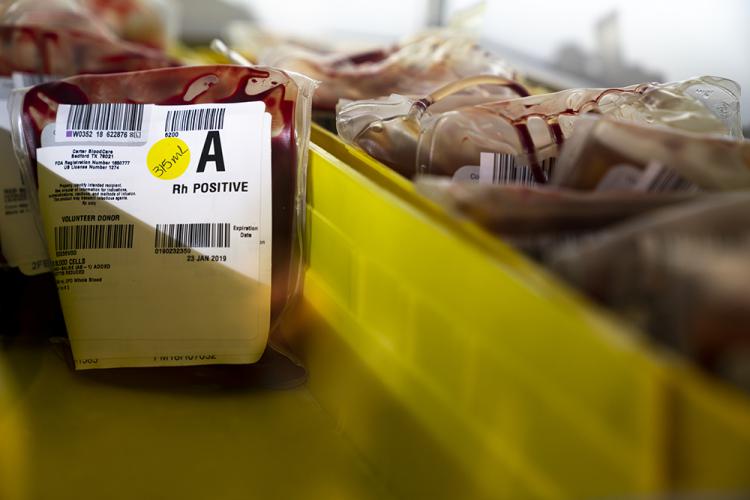
Organizers are hopeful a June blood drive at JPS health Network will draw a big crowd of donors, building up vital reserves to last through the summer months.
The time of year when kids are out of school is the time when collecting blood is the most difficult, according to Vickie Carpenter, Operation Manager of Recruitment at Dallas-Fort Worth blood bank Carter BloodCare. It’s also the time when blood is the most needed because people are traveling and moving about, increasing the number of traumatic accidents that occur on area roadways.
“Summer time, during the months of June, July and August, that’s a time when we typically have a critical need for blood donations,” Carpenter said. “It’s unfortunate that we also have fewer donors in the summer time, so it’s really important to do everything we can to keep enough of a supply on the shelf.”
The JPS blood drive will be held Monday, June 24 from 9 a.m. until 5 p.m. on the third floor of the John Peter Smith Hospital Building at 1500 South Main Street in Fort Worth, just outside the red elevators. To make an appointment to donate, click here to visit the Carter BloodCare donor portal.
Carpenter said a substantial portion of blood donations typically comes from high school and college students. But, when school is out of session, donations have to be found from other sources.
“Students usually supply about 25 percent of the blood,” Carpenter said. “I know we need all blood types right now, but especially RH negative. People get busy, they go on vacation. So this in the time we need people to step up and give.”
Because JPS has the only Level 1 Trauma Center in Tarrant County, it’s the place where victims of serious accidents are taken. Because of that, it’s important to have enough blood on hand when it’s required to save a life.
“The trauma cases are never going to go away,” said Allison Kelly, Primary Blood Drive Coordinator at JPS. “We have to be ready to respond when we’re needed.”
Because of the fact that JPS serves trauma patients, Type O Negative blood is especially valuable, Kelly said. Known as the “universal blood type,” it is given to patients because there isn’t time when seconds count after they arrive in an ambulance or on a helicopter to check their blood type until they’re stabilized.
When students aren’t in school, the caregivers themselves – doctors, nurses, and other hospital team members – often try to make up the lost pints by rolling up their sleeves and becoming the first people in line to donate, Kelly said. But she urged summer travelers to consider donating before they go away for a while.
“I realize when we’re thinking about vacation, donating blood isn’t on your mind,” Kelly said. “But it could really make a difference in saving a life.”
Kelly said waiting until after vacation could cause problems if you’re traveling abroad. There are restrictions against giving blood for a certain period of time if you travel to some countries.
Donors must bring a state-issued photo identification card with them. It is recommended that people who wish to donate eat before they arrive. Carter BloodCare screens all donors, a process that includes a finger-stick blood test for hemoglobin, which transports oxygen and is rich in iron. Would-be donors with low hemoglobin levels must be asked to postpone donation. To raise the odds of successful donation, Carter BloodCare recommends maintaining a healthy hemoglobin level by eating foods rich in iron.
Iron-rich foods include meat, fish and poultry; vegetables such as spinach, sweet potatoes, peas, broccoli, string beans and kale; fruits including strawberries, watermelon, raisins and prunes; and foods such as tofu, beans, tomato products and lentils.
